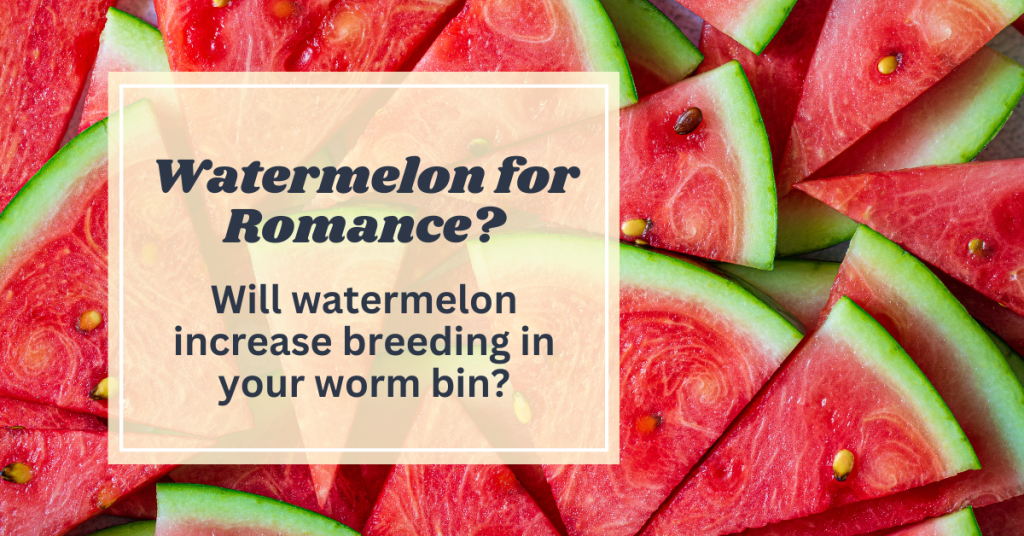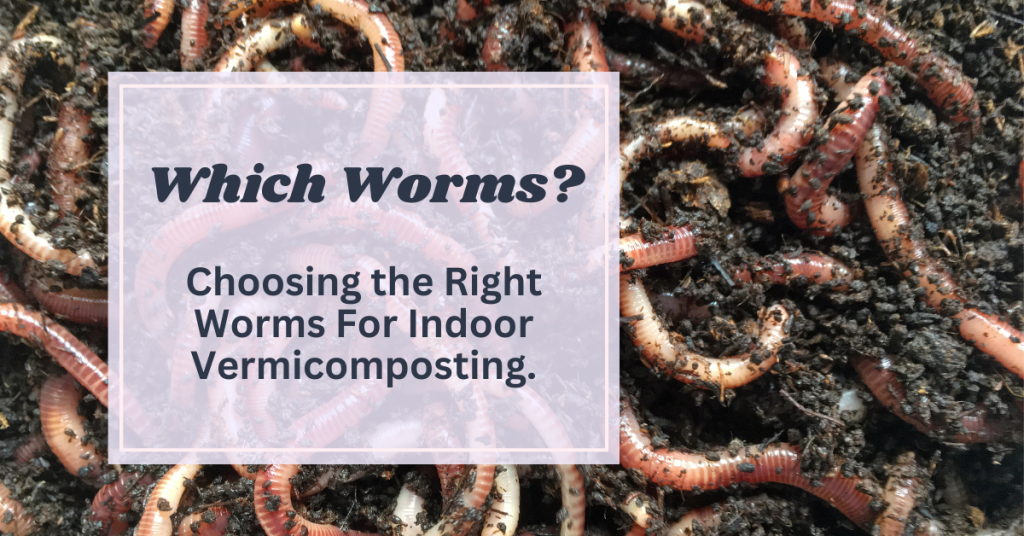Black Soldier Fly Larvae in Worm Bins: Are They Good or Bad for Your Vermicompost?
Please note that this post may contain affiliate links, which means we may earn a commission if you make a purchase through our links, at no extra cost to you. Learn more.
If you’ve ever looked into your worm bin and noticed something other than your usual red wigglers, you might have encountered Black Soldier Fly Larvae (BSFL).
While these fast-growing composting helpers are highly efficient at breaking down organic waste, their presence in a worm bin can sometimes be a bit of a mixed blessing, especially for indoor setups.
This post will explore when and where BSFL might be beneficial, and when you may want to take steps to control them.
What Are Black Soldier Fly Larvae?
Black Soldier Fly Larvae (scientific name: Hermetia illucens) are renowned for their ability to quickly break down food waste.
Unlike the slightly more delicate red wigglers used in vermicomposting, BSFL thrive in hot, nitrogen-rich environments, making them powerful decomposers.
- Waste Degradation Speed: BSFL can process organic materials in as little as five weeks, far faster than traditional composting methods, which can take 8 to 24 weeks.
- Appearance: They are larger than red wigglers, often growing up to 1 inch long, with a segmented body that is usually dark brown or gray.
While their efficiency is undeniable, BSFL aren’t always the best fit for every type of composting, especially when it comes to at-home worm bins, but we’ll get into that a bit later.
Benefits of Black Soldier Fly Larvae in Composting
BSFL are highly valued in certain composting systems due to their impressive decomposition abilities.
They accelerate the breakdown of organic materials and offer additional benefits beyond just waste reduction:
- Enhanced biodegradation: BSFL strengthen the composting process by producing enzymes that help break down carbohydrates, leading to faster composting.
- Pathogen suppression: One unique trait of BSFL is their ability to produce antimicrobial peptides, which inhibit the growth of harmful pathogens, making the resulting compost safer.
- Elimination of fungi: BSFL can completely eliminate mycelial fungi, including molds, from the compost, reducing the risk of fungal infestations.
Their ability to handle waste quickly and effectively has led some to consider them “super composters.”
However, the dynamics change when they’re introduced to a worm bin, where they may not always be welcome.
Black Soldier Fly Larvae in Worm Bins: Potential Issues
While Black Soldier Fly Larvae are excellent composters, their presence in a worm bin can create several challenges, especially if your goal is vermicomposting (a la worms!).
BSFL and worms both break down organic matter, but they do so in different ways, which can lead to competition and environmental changes in the bin.
- Competition for food: BSFL are voracious eaters. If they’re present in large numbers, they can outcompete your worms for food, leaving little behind for the worms to process.
- Environmental changes: BSFL thrive in nitrogen-rich, moist conditions. When they appear in a worm bin, it’s often a sign that the bin is too wet or has too much green material, which creates an environment less suitable for worms.
- Worm population decline: If BSFL populations grow unchecked, you might notice a decline in your worm population. The different needs of BSFL can disrupt the delicate balance of your bin, making it harder for worms to thrive.
While BSFL may not necessarily harm worms directly, the shift in conditions can negatively affect your vermicomposting system over time.
Managing Black Soldier Fly Larvae in Worm Bins
If you notice Black Soldier Fly Larvae in your worm bin, especially indoor worm bins, it’s important to act quickly to maintain the right conditions for your worms.
Here are some steps you can take:
- Remove BSFL manually: If you spot them in your bin, you can carefully remove the larvae by hand or with a small tool. Be sure to remove as many as possible to keep the population from growing.
- Adjust moisture levels: BSFL thrive in moist conditions. Check the moisture of your worm bin and add dry, carbon-rich bedding like shredded newspaper or cardboard to balance the environment.
- Bury food scraps deeper: Make sure you bury any food scraps under the bedding. This makes the bin less attractive to Black Soldier Flies, whose eggs are often laid near exposed food.
- Screen your bin: If you’re keeping your bin outdoors or in an area where flies are present, use a screen over ventilation holes to prevent adult Black Soldier Flies from laying eggs inside. They can’t lay eggs in your worm bin if they can’t get in!
By making these small adjustments, you can restore balance to your worm bin and minimize BSFL presence.
Are Black Soldier Fly Larvae Always a Problem?
While BSFL can cause issues in worm bins, especially indoors, they aren’t always harmful. In fact, some composters intentionally use BSFL in outdoor systems for their quick processing abilities and the nutrient-rich compost they produce.
For outdoor bins, BSFL may not pose much of a problem if you’re focused more on composting efficiency than vermicomposting. Since they break down organic matter much faster than worms, they can be a good solution for managing large amounts of food waste in a short time.
However, for indoor worm bins, especially smaller set-ups, BSFL are typically unwanted due to the following reasons:
- They create a messier, smellier environment that may not be pleasant in enclosed spaces.
- Their rapid consumption of food can outpace worms, leaving them with less food.
- A BSFL infestation can indicate that the conditions in your bin are not suitable for worms.
The key is to determine whether you’re focused on vermicomposting (where worms are the primary decomposers) or general composting. If your goal is a worm-friendly environment, it’s best to minimize or eliminate BSFL in your worm bin.
Conclusion: Friend? Foe? Or “I don’t know”?
Black Soldier Fly Larvae can most definitely be an asset in many composting scenarios, but their role in worm bins is more complicated.
While they excel at breaking down organic matter quickly, their presence in a worm bin can lead to competition for resources, environmental imbalances, and potential declines in worm populations.
For those using outdoor composting systems, embracing BSFL may enhance waste management. However, it’s still important to monitor and manage their presence as you would with any other pest in your bin.
By taking some simple steps like adjusting moisture levels and screening your bin, you can create an optimal environment for your worms to thrive and help keep BSFL out.
So, while they aren’t necessarily “good guys” or “bad guys” per say, with any critter that shows up in your worm bin, we think it’s best to keep an eye on things and try to keep their population low. ‘
We are worm farmers, after all!









